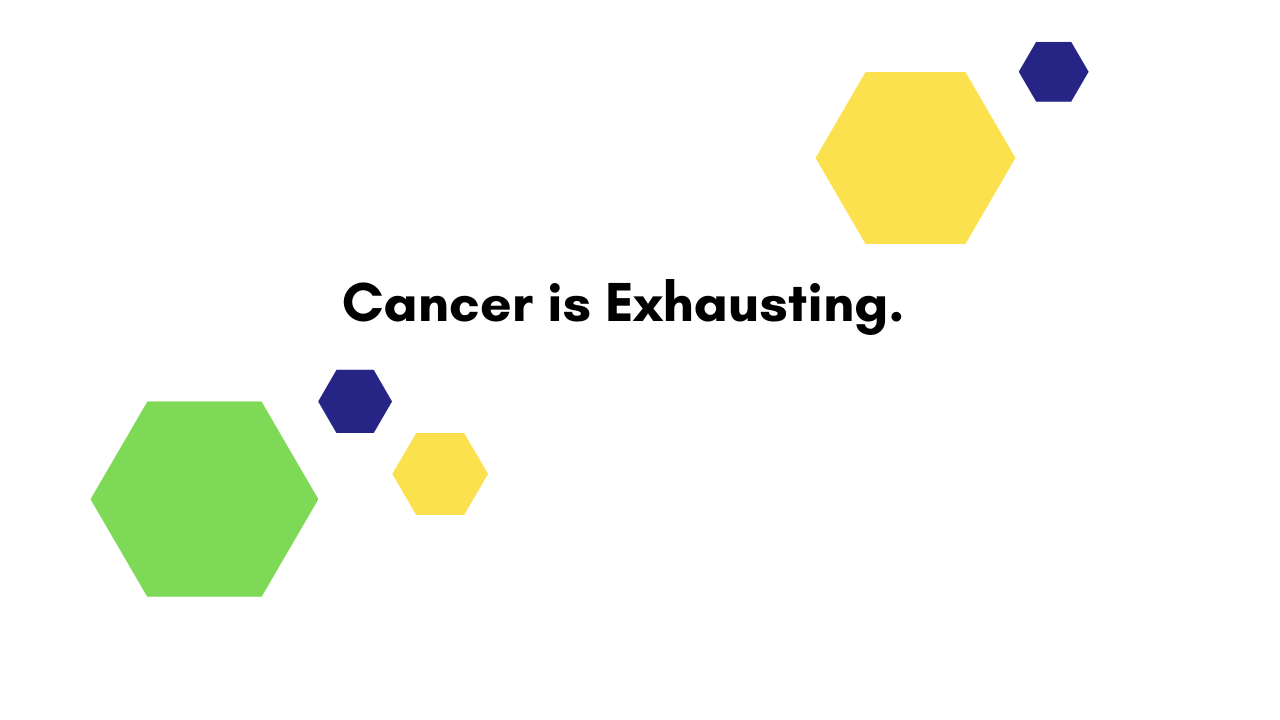Cope with Fatigue by Setting Your Levels
By Allie Neenan, PhD, LP | Last updated 12/4/24

Fatigue is an ignored symptom in the world of childhood cancer. It affects caregivers, survivors, and even diagnosed children. When children are young, caregivers are usually responsible for helping them navigate fatigue and access the support they need. As time marches on, fatigue can start to feel like a hopeless, isolating problem.
Fatigue differs from tiredness in a few important ways. First, fatigue is often not relieved by rest. The exhaustion may persist after eight or more hours of sleep. Similarly, the physical and mental slowness that comes with fatigue is present even when a person is not sleepy. Coping with fatigue requires planning, creativity, and grace - things in short supply when you're fighting through each hour, day, or minute.
If you find yourself struggling to manage fatigue, you have likely already tried a number of strategies to manage. The tips in this post may give you some new ideas, or they may reaffirm the value in things you are already working toward.
You may have noticed that fatigue tends to fluctuate. Some people cope with this uncertainty by focusing on the present moment - savoring the good days and waiting for the bad ones to end. In the short term, this can be helpful for avoid getting overwhelmed. In the long term, it may lead to missed opportunities for proactive coping.
Using a "levels" system can help with effectively managing fatigue. Consider the following set of levels and how they may reflect your experience:
Level 1: Getting out of bed is difficult or impossible, self care tasks like eating and cleaning happen either very slowly or not at all
Level 2: Basic self care tasks at home are doable, but going outside for work or leisure is difficult or impossible
Level 3: It is possible to complete both personal and work-related tasks
Perhaps you have more levels, or you may levels with different abilities. Putting names and numbers to your levels can help you understand them.
Within different domains of functioning, you can plan for changes in levels. Here is an example of how that may look:
Eating Level 1: Keeping granola bars near bed, having ready-to-eat produce like veggie sticks in the fridge, having paper plates available if doing dishes is not possible
Eating Level 2: Cooking simple meals such as pasta with a prepared sauce, making extra servings to save for days when cooking isn't possible
Eating Level 3: Meal prepping in larger quantities, taking inventory of foods in the home, grocery shopping to replace needed foods
The level system can even be applied for an individual meal. For example, a Level 1 breakfast may be toast, a Level 2 breakfast could involve cutting some fruit to have with the toast, and a Level 3 breakfast could add cooking some eggs. In an ideal world, Level 3 meals (or hygiene routines, cleaning routines, etc.) would be accessible all of the time. Unfortunately, that may not be feasible at times when you are managing serious fatigue.
Giving yourself permission to not always be at "Level 3" is sometimes one of the hardest steps. If you have known a time without fatigue, accepting the change is a grieving process. There is no perfect way to cope with fatigue. It is usually a process of trial and error, and flexibility is the name of the game.
If you are having trouble with accounting for the details of executing tasks, the free website GoblinTools has a built-in "break it down" feature that lists out the 5, 10, or 50 unique tasks required for a chore like "go to the grocery store." Sometimes the most difficult part of fatigue is mental fatigue, and you deserve all of the support you need to get through it.
All content on Cancer Cushion is provided for informational purposes only. Individuals experiencing a mental health emergency should contact their local crisis line or dial 988.